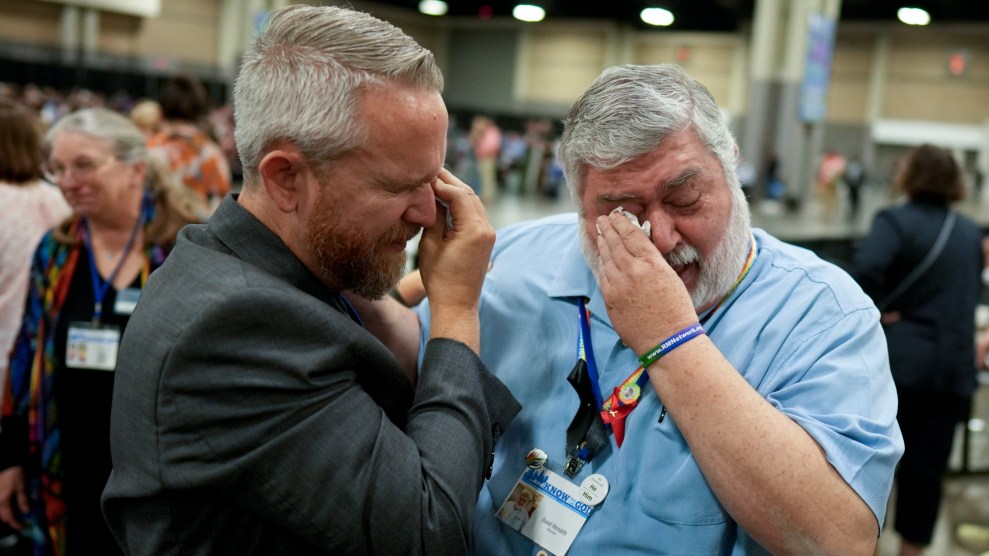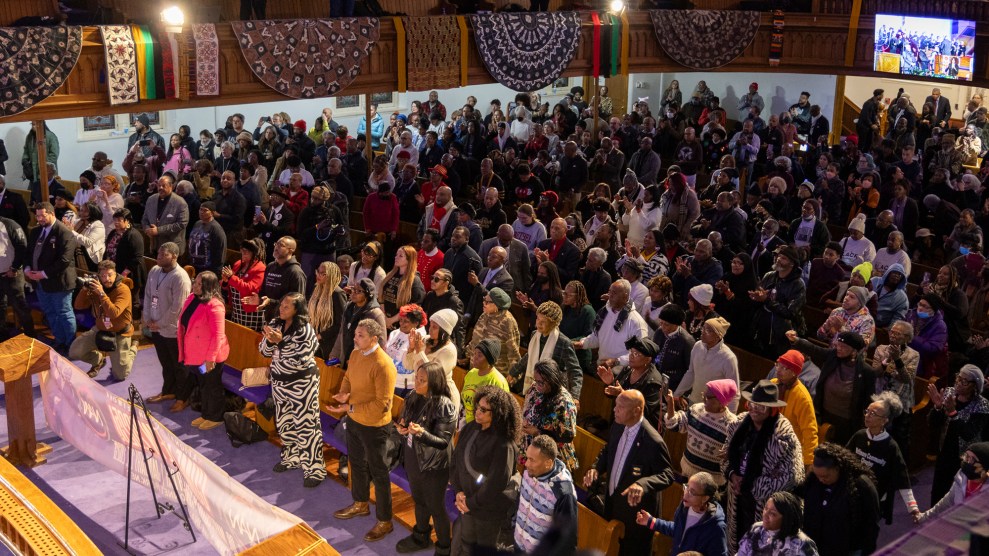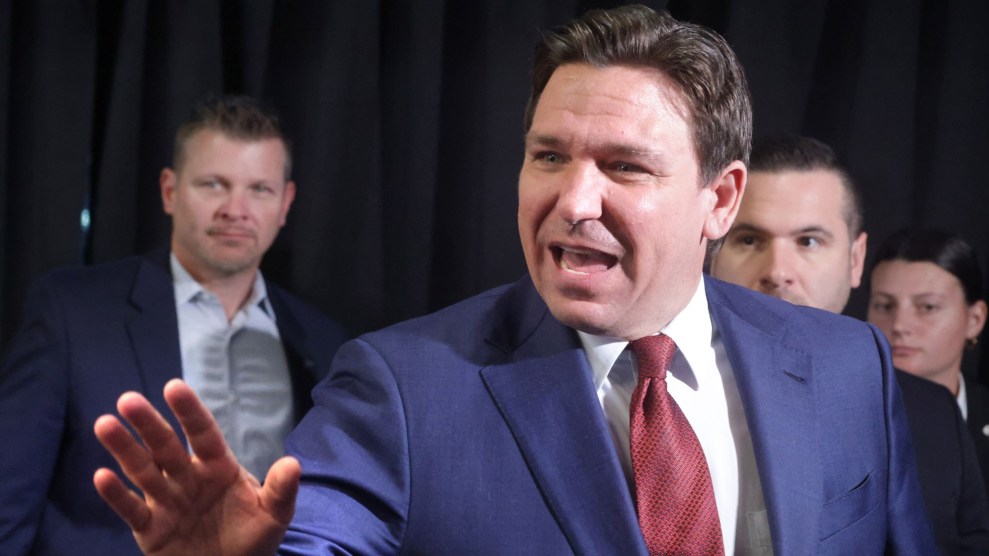
Chris Carlson/AP
On Wednesday, the United Methodist Church repealed its 1984 ban on LGBTQ clergy with an overwhelming 692–51 vote by church leaders at its general conference. The conference, which ends on May 3, has also resulted in the church rolling back several other anti-LGBTQ policies, including bans on performing gay marriage and funding queer-friendly ministries.
The passage of these measures heralded a new era for the church. At the convention in 2019, delegates, made up of both clergy and laypeople, voted 438 to 384 to affirm the bans struck down in this year’s conference and heightened penalties for breaking them. But 2024 marks the first convention after an ideological schism between conservative and progressive Methodists led some parishes to buck restrictions on LGBTQ worshippers while others doubled down.
Between 2019 and 2023, one-quarter of US Methodist denominations disaffiliated from the United Methodist Church. As the progressive arm of the church gained strength, many conservative parishes disaffiliated from the United Methodist Church, clearing the path for progressives to reverse anti-LGBTQ bans with overwhelming support.
Still, the fight for parity is not over. Wednesday’s repeal does not mandate that all parishes accept queer clergy. It would also apply only to Methodist churches in the US, since parishes from other countries control their own governance. Yet even this measured win sparked an enthusiastic reaction from the crowd. Advocates embraced and applauded teary-eyed, according to the Associated Press, and celebrations rang out outside the convention center.
Guthrie Graves-Fitzsimmons, author of Just Faith: Reclaiming Progressive Christianity, wrote in a NBC News op-ed that these changes should mark a shift in the cultural understanding of queerness in religion. “We can put to rest the idea that religion and LGBTQ rights are inherently in conflict,” he wrote. “Just as positive views on LGBTQ rights have trended upward, so, too, have Christian groups evolved their theological understandings of human sexuality and gender identity.”

















